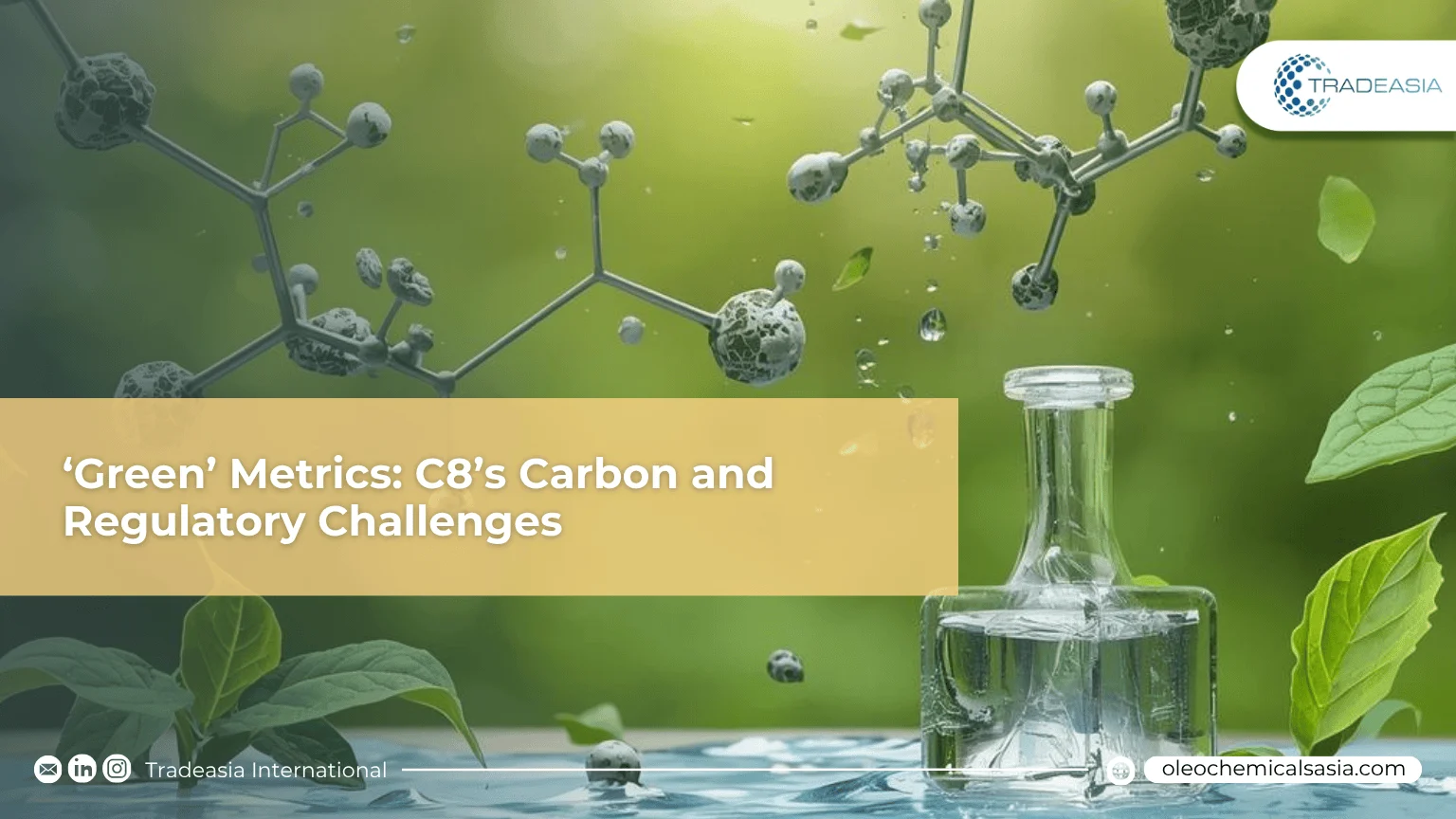Quantifying 'Green': Methyl Caprylate's Carbon Metrics and Regulatory Headwinds in Q4

Table of Content
- The Technical Superiority of Bio-Based Esters
- Compliance as the New Currency in Q4
In the modern chemical trade, "green" is not just a marketing term; it is a measurable, regulatory requirement. For Methyl Caprylate (MC), its sustainability profile is a defining competitive feature, validated by hard data on its environmental performance and compliance readiness. MC’s status as a bio-based product offers quantifiable advantages over its traditional petrochemical counterparts, driving substitution demand across Europe and North America.
The Technical Superiority of Bio-Based Esters
The core of MC's environmental appeal is its low toxicity and rapid breakdown. MC, like many Fatty Acid Methyl Esters (FAMEs), is classified as "readily biodegradable," consistently achieving over 60% degradation within 28 days in various aquatic environments. This metric is essential for minimizing environmental persistence and liability. The use of bio-based oleochemicals aligns with the shift toward lower carbon footprints. Independent studies on FAMEs show that substituting petroleum-based surfactants and esters can potentially yield a 60% to 90% reduction in CO2 emissions, provided sustainable, traceable sourcing is maintained. Building a robust supply network is much like cultivating a sustainable palm plantation—it requires unwavering commitment to long-term quality and constant monitoring from the ground up.
Compliance as the New Currency in Q4
This November, providing customers with verifiable performance and carbon data is non-negotiable. Oleochemical Asia's market insights reinforce the increasing importance of compliance with norms for sustainable cultivation, manufacturing, and distribution as a "significant winning factor." The looming Q4 2025 is critical due to the expected revision proposal for the EU's REACH regulation, which will likely accelerate restrictions on persistent, toxic chemicals and standardize the Generic Risk Management Approach. This regulatory pressure creates a massive substitution opportunity for natural, low-toxicity alternatives like MC. By prioritizing MC supply with guaranteed sustainable provenance, traders are not merely selling a chemical; they are providing compliance certainty and enabling their clients to meet their environmental commitments with hard, verifiable data.
Sources:
-
Market Insight Page - Oleo Chemicals Asia by Tradeasia (Focusing on Compliance and Sustainability)
-
Degradation of fatty acid methyl esters in biodiesels exposed to sunlight and seawater
-
Chemical & Product Regulatory Outlook - Focus on the EU market - REACHLaw Blog (Q4 2025 REACH Revision)

Leave a Comment